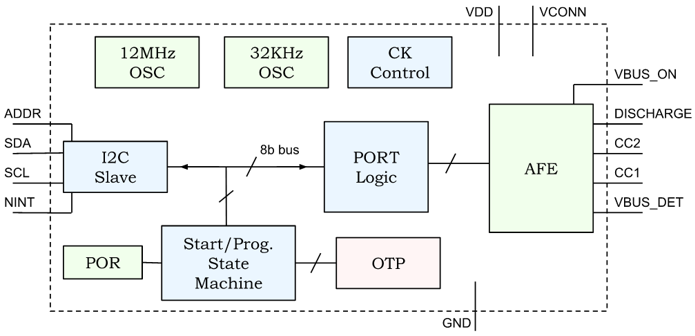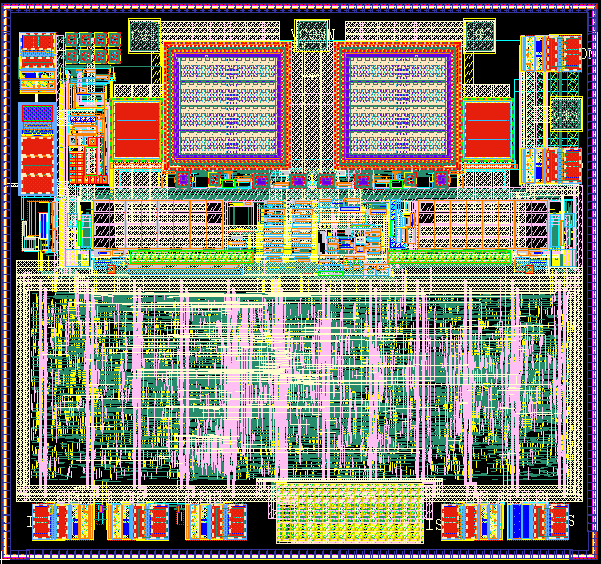Obsidian provides full chip customization of USB Type-C devices based on the OT91xx series of IP, control logic, and customized software.

Features
- USB PD 3.1 compliant.
- Type-C Source, Sink, or dual-role mode.
- 12+ pin packages.
- Less than 1.6 mm2 area in 180nm.
- 400KHz or 1MHz I2C speeds.
- VDD 2.7V – 5.5V voltage range.
- 100mW or 1W VCONN power.
- Based on Obsidian’s mature PD technology.
- Option of TCPC or Obsidian register set.
- Integrated OTP for trimming.
- CC pin short to VBUS protection.
- VCONN short circuit protection.
- Internal 12MHz and 32KHz low power oscillators.
- Internal current and voltage references.
- 10uW sleep mode.
- Supports low cost, 2 layer PCB assembly.
- Supported by the module level test program.
Major Functions
- Physical Layer. Based on Obsidian’s port chip physical layer, this provides CC line driving and reception without external components. It includes data slicer, activity detection, voltage level detection, and slew rate controlled driver.
- LDO. Provides bandgap, and internal voltage regulation for the logic the physical layers. Power diodes also provide the required power isolation between two possible power sources (one at each end of the cable).
- Oscillators. A low temperature drift 12MHz oscillator provides logic clocking when required. The provided test program automatically trims the oscillator during a test for an overall frequency accuracy of ±5%. While not active an internal 32KHz oscillator keeps timers running.
- Protocol Engine implements the low level protocol and logic PHY functions required by the standard. Such as CRC generation and testing, 4b5b coding, BMC coding, clock recovery, and SERDES.
- I2C Slave for port control with minimal pins.
- Programmed response. Will respond with Cert-Stat VDO and Cable-VDO with all relevant fields programmable.
- Supporting Software in C form is available for rapid implementation of production test.
